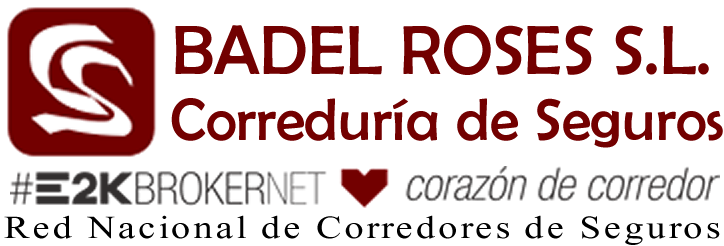Navigating Personal Loans After Bankruptcy: A 2025 Guide to Financial Recovery
Understanding the Landscape of Post-Bankruptcy Borrowing

In 2025, the financial world continues to evolve, and so do the options for those seeking personal loans after bankruptcy. The journey to financial recovery can be challenging, but it’s far from impossible. As we dive into this comprehensive guide, remember that each step forward is a move towards rebuilding your credit and securing your financial future.
Bankruptcy, while a difficult decision, often serves as a fresh start for many. However, the aftermath can leave individuals wondering about their borrowing capabilities. The good news is that obtaining a personal loan after bankruptcy is not out of reach, though it does require careful navigation and understanding of the new financial landscape you’re entering.
The Impact of Bankruptcy on Your Credit Score
Before we delve into the specifics of securing a personal loan post-bankruptcy, it’s crucial to understand how bankruptcy affects your credit score. According to Experian, one of the major credit bureaus, bankruptcy can remain on your credit report for up to 10 years. This lingering effect can significantly impact your ability to borrow, but it’s not a permanent roadblock.
The Timeline: When Can You Apply for a Personal Loan After Bankruptcy?
Many people ask, “How soon can I get a personal loan after bankruptcy?” The answer isn’t one-size-fits-all, but there are general guidelines to consider:
- Immediately after discharge: Some lenders specialize in post-bankruptcy loans, but expect high interest rates.
- 6 months to 1 year: More options may become available as you rebuild your credit.
- 2 to 4 years: With consistent credit rebuilding, you may qualify for better terms.
- 5+ years: Your options significantly improve, potentially including traditional bank loans.
It’s important to note that while you can technically apply for a personal loan immediately after your bankruptcy is discharged, waiting and focusing on rebuilding your credit first often leads to better loan terms and higher chances of approval.
Rebuilding Your Credit: The First Step Towards a Personal Loan
Before diving into personal loan applications, focus on rebuilding your credit. This step is crucial in improving your chances of securing a personal loan after bankruptcy with favorable terms. Here are some strategies to consider:
- Secure a credit-builder loan or a secured credit card
- Make all payments on time, every time
- Keep credit utilization low (under 30% of available credit)
- Monitor your credit report regularly for errors
- Consider becoming an authorized user on a family member’s credit card
Types of Personal Loans Available After Bankruptcy
As you navigate the post-bankruptcy landscape, you’ll encounter various types of personal loans. Each comes with its own set of pros and cons:
| Loan Type | Pros | Cons |
|---|---|---|
| Secured Personal Loans | Easier to qualify, potentially lower interest rates | Requires collateral, risk of losing asset if you default |
| Unsecured Personal Loans | No collateral required, flexible use of funds | Higher interest rates, stricter qualification requirements |
| Peer-to-Peer Loans | May be more lenient with credit requirements | Interest rates can be high, may take longer to fund |
| Credit Union Loans | Often have more favorable terms for members | May require membership and have limited availability |
The Rise of Alternative Lenders in 2025
In recent years, and particularly by 2025, we’ve seen a surge in alternative lenders who are more willing to work with individuals who have a bankruptcy on their record. These lenders often use non-traditional methods to assess creditworthiness, looking beyond just credit scores to factors like employment history, income stability, and overall financial behavior post-bankruptcy.
Preparing Your Application for a Personal Loan After Bankruptcy
When you’re ready to apply for a personal loan, preparation is key. Here’s what you need to focus on:
- Gather all necessary documentation (proof of income, bank statements, etc.)
- Be prepared to explain your bankruptcy and subsequent financial steps
- Have a clear purpose for the loan and a solid repayment plan
- Check your credit report and score before applying
- Consider getting pre-qualified to understand your options without hard credit pulls
The Importance of Shopping Around
In 2025, the lending market is more diverse than ever. Don’t settle for the first offer you receive. Shop around and compare offers from multiple lenders. Pay attention to:
- Interest rates
- Loan terms
- Fees and charges
- Prepayment penalties
- Customer reviews and lender reputation
Understanding the Risks and Rewards of Post-Bankruptcy Personal Loans
While securing a personal loan after bankruptcy can be a step towards financial recovery, it’s crucial to understand both the potential benefits and risks involved.
Potential Benefits:
- Opportunity to rebuild credit
- Access to funds for necessary expenses or debt consolidation
- Potential for better loan terms as you demonstrate responsible borrowing
Potential Risks:
- Higher interest rates compared to pre-bankruptcy loans
- Risk of falling into a debt cycle if not managed properly
- Potential for predatory lending practices targeting post-bankruptcy borrowers
Alternatives to Personal Loans After Bankruptcy
While personal loans can be a viable option, it’s worth considering alternatives that might better suit your post-bankruptcy financial situation:
- Secured credit cards for rebuilding credit
- Saving and budgeting to avoid new debt
- Seeking financial counseling or credit repair services
- Exploring government assistance programs for specific needs
The Road Ahead: Long-Term Financial Health After Bankruptcy
Securing a personal loan after bankruptcy is just one step in your journey to financial recovery. As you move forward, focus on these key areas:
- Consistent, on-time payments for all debts
- Building an emergency fund to avoid future financial crises
- Continuing financial education and budget management
- Regular monitoring of your credit report and score
- Planning for long-term financial goals beyond immediate needs
Conclusion: Embracing Your Financial Future
Navigating the world of personal loans after bankruptcy in 2025 requires patience, diligence, and a commitment to responsible financial management. While the path may seem challenging, remember that each step forward is progress. By understanding your options, preparing thoroughly, and making informed decisions, you can use personal loans as a tool for rebuilding your credit and securing a stronger financial future.
As you embark on this journey, consider seeking advice from financial professionals. Organizations like the National Foundation for Credit Counseling (NFCC) offer valuable resources and guidance tailored to post-bankruptcy borrowers.
Product Table: Personal Loans After Bankruptcy in 2025
| Lender | Type of Loan | Min Credit Score Requirement | Loan Amount Range (USD) | Average APR (%) |
|---|---|---|---|---|
| ABC Personal Loans | Unsecured Personal Loan | No minimum required, flexible terms for post-bankruptcy borrowers | $1,000 – $50,000 | 24.9% to 35.9% |
| PQR Credit Union | Secured Personal Loan | Varies based on credit score; post-bankruptcy loans available | $1,000 – $35,000 | 7.9% to 14.9% |
| LMO Alternative Lending | Peer-to-Peer Loan | No minimum; evaluates financial stability post-bankruptcy | $5,000 – $75,000 | 12% to 36% |
By exploring these options and comparing them with your unique situation, you’ll be better equipped to make informed decisions about securing a personal loan after bankruptcy in the dynamic financial landscape of 2025.
- Loans For Bad Credit
- 1K Personal Loan
- 1200 Personal Loan
- 2K Personal Loan
- 10K Personal Loans
- 3K Personal Loan
- 1500 Personal Loans
- 5K Personal Loan
- 8K Personal Loan
- 7K Personal Loan
- 4K Personal Loan
- 20K Personal Loan
- 25K Personal Loan
- 2500 Personal Loans
- 50K Personal Loan
- 6K Personal Loan
- 3500 Personal Loans Good Bad Credit
- 15K Personal Loan
- 30K Personal Loan
- 100K Personal Loan
- 550 Credit Score Personal Loan
- 520 Credit Score Personal Loan
- 500 Credit Score Personal Loan
- 620 Credit Score Personal Loan
- Personal Loans For Credit Score Under 600
- Personal Loans For High Income Individuals
- Loans For The Unemployed With Bad Credit
- Bad Credit Loans New York
- Bad Credit Loans California
- First Time Personal Loans No Credit History
- Personal Loan With Co Signer
- Emergency Loans For Bad Credit
- Christmas Loans For Bad Credit
- Same Day Personal Loans
- Car Repair Loans For Bad Credit
- Motor Cycle Loans For Bad Credit
- Bad Credit Loans Texas
- Dental Financing
- Roof Financing
- Holiday Loans For Bad Credit
- Personal Loan After Bankruptcy
- Tractor Financing
- Lawn Mower Financing
- Bad Credit Loans Georgia
- Bad Credit Loans Illinois
- Personal Loan With Collateral
- Manufactured Home Financing
- Bad Credit Loans Pennsylvania
- Hvac Ac Financing
- Bad Credit Loans Arizona
- Bad Credit Loans Louisiana
- Bad Credit Loans Virginia
- Rv Financing
- Loans For Postal Employees With Bad Credit
- Bad Credit Loans North Carolina
- Land Loans For Bad Credit
- Furniture Financing
- Personal Loans For Low Income Individuals
- Bad Credit Loans Arkansas
- Plastic Surgery Loans For Bad Credit
- Esign Loans For Bad Credit
- Vacation Loans For Bad Credit
- 12 Year Personal Loan
- Flooring Financing
- Personal Loans In Illinois
- Illinoischicago Illinois
- Plumbing Financing Work Repairs
- Fence Financing
- Loans For Independent Contractors
- No Credit Check Home Improvement Loans
- Bad Credit Loans New Jersey
- Loans For Uber Drivers With Bad Credit
- Pool Financing
- Bad Credit Loans Ohio
- Subprime Personal Loans
- Rv Loans For Bad Credit
- Bad Credit Loans Maryland
- Bad Credit Loans Iowa
- Personal Loans In Connecticut

